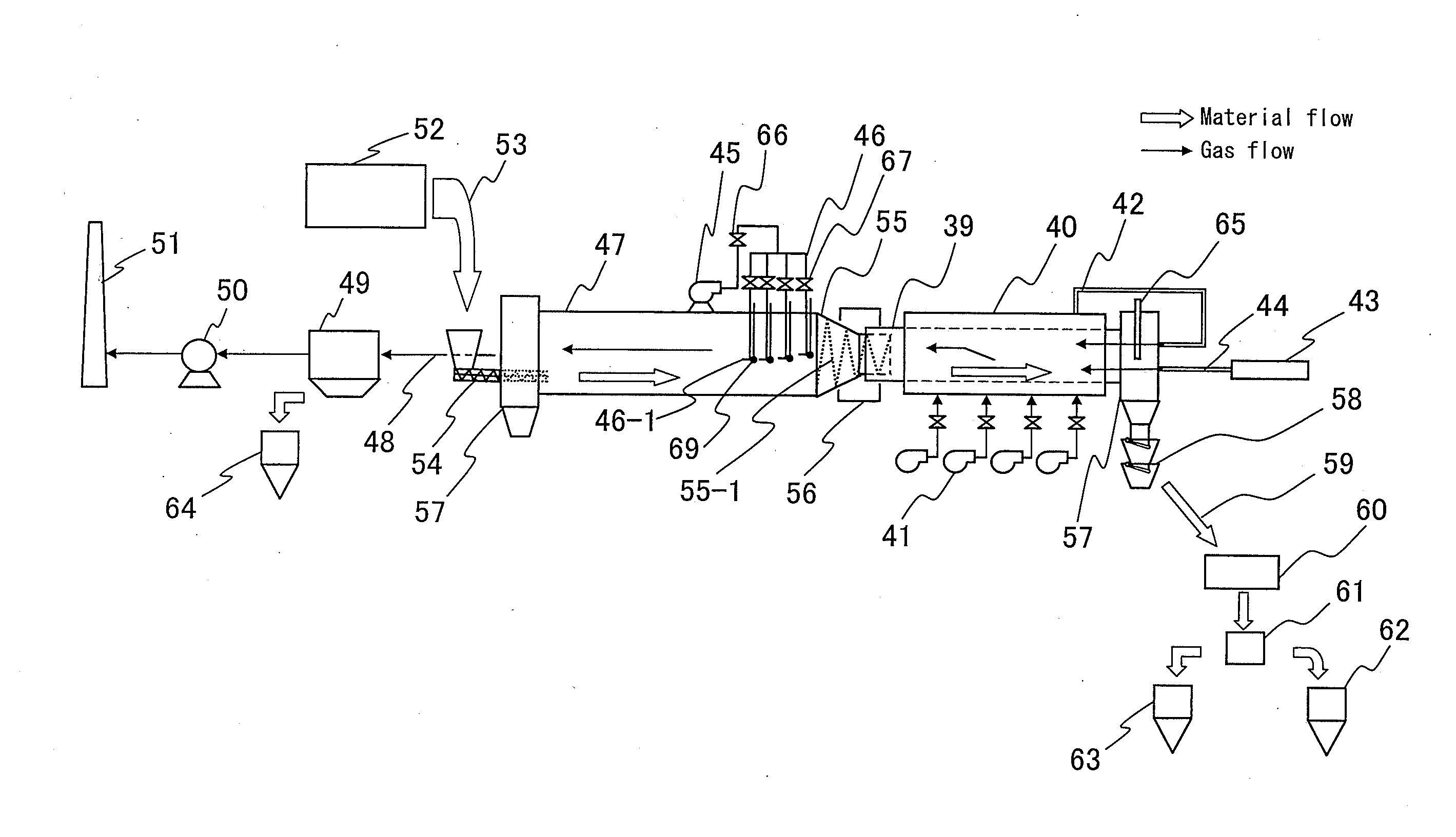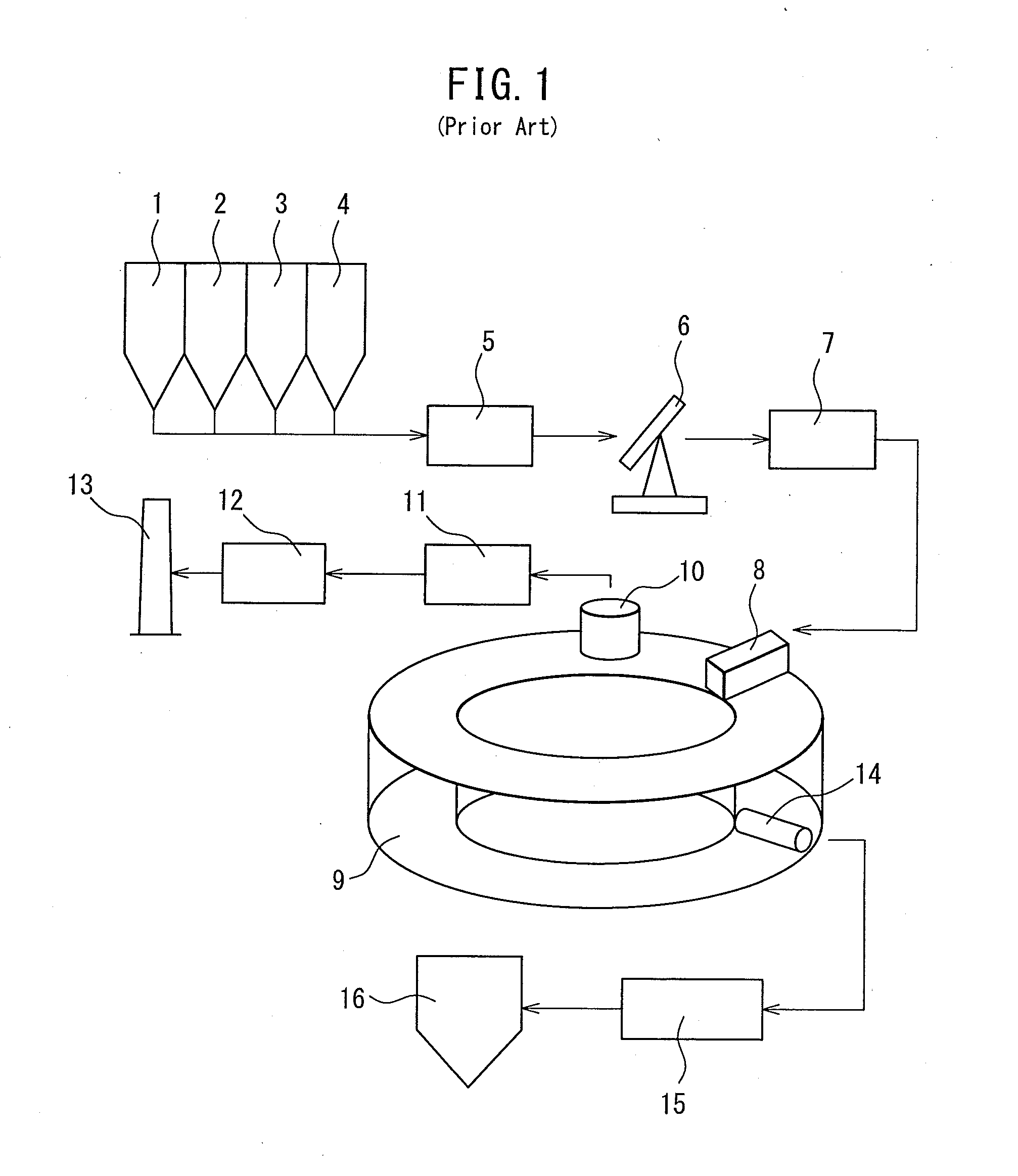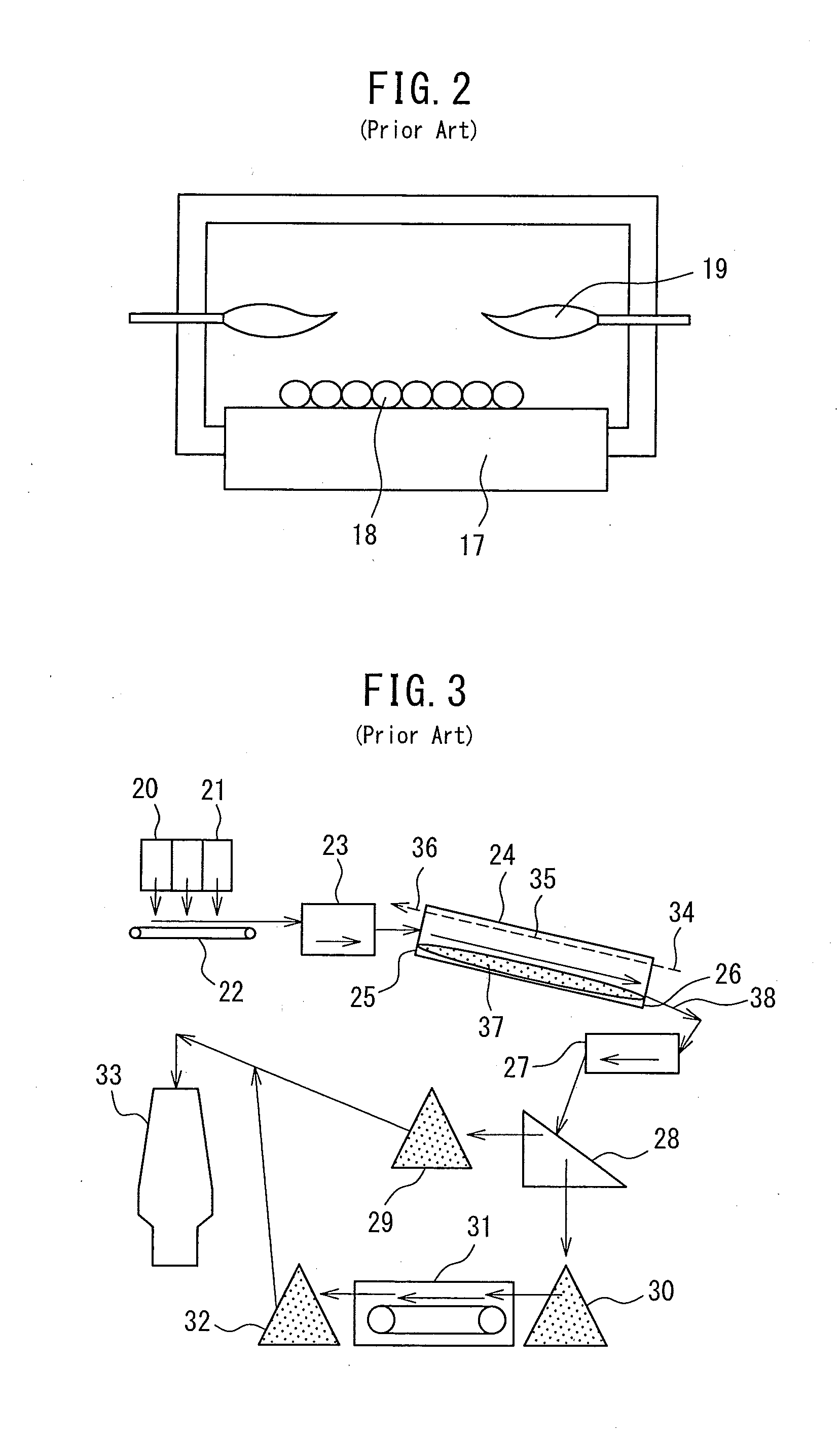Method of production and apparatus for production of reduced iron
a technology of equipment and iron, applied in the direction of metal processing, climate sustainability, checking devices, etc., can solve the problems of environmental problems, extreme difficulty in handling, and another problem to take no
- Summary
- Abstract
- Description
- Claims
- Application Information
AI Technical Summary
Benefits of technology
Problems solved by technology
Method used
Image
Examples
example 1
[0114]Below, the present invention will be explained by examples obtained by a test plant. Table 1 shows the chemical components of non-oxidative cured products which were obtained by drying converter sludge which was used in a later explained test operation in a N2 stream. The M.Fe was a considerably high 19.2%. The distribution of particle size of this converter sludge was measured by a laser diffraction and scattering type particle size distribution measuring apparatus (microtrack) and was found to be D10=0.5 μm, D50=1.4 μm, and D90=3.6 μm. As explained above, D50 means the particle size where the cumulative frequency from the fine particles corresponds to 50% in the cumulative particle size distribution. Similarly, D10 means the particle size where the cumulative frequency from the fine particles corresponds to 10%, D90 means the one which it corresponds to 90%.
TABLE 1T•FeM•FeFeOFe2O3CZnDried product of70.419.264.71.214.761.81converter sludge in N2stream (mass %)
[0115]Table 2 sh...
example 2
[0145]Next, the above test apparatus was used to run tests for production of reduced iron by carbon-containing shaped materials which were produced by converter type pretreatment furnace sludge and electric furnace dust (dust generated at electric type iron melting furnace). Table 4 shows the chemical components of a non-oxidative cured product which was dried in a nitrogen (N2) stream. Table 5 shows the distribution of the particle size of these.
[0146]To the above material, a carbonaceous material constituted by powdered coke was added to give a C equivalent of 1.0 (Zn is all ZnO, while the C equivalent for FeO+Fe2O3+ZnO was 1.0). Using the same method as at the time of Example 1, an extruder was used to produce 15 mmφ×20 mm shaped materials for use for a reduction test. The test conditions were made the same as Test No. 5 of Example 1. The results of the tests are shown in Table 6. These test results confirmed that in each case, the properties of reduced iron by the RHF method (se...
PUM
| Property | Measurement | Unit |
|---|---|---|
| Diameter | aaaaa | aaaaa |
| Diameter | aaaaa | aaaaa |
| Particle size | aaaaa | aaaaa |
Abstract
Description
Claims
Application Information
 Login to View More
Login to View More - R&D
- Intellectual Property
- Life Sciences
- Materials
- Tech Scout
- Unparalleled Data Quality
- Higher Quality Content
- 60% Fewer Hallucinations
Browse by: Latest US Patents, China's latest patents, Technical Efficacy Thesaurus, Application Domain, Technology Topic, Popular Technical Reports.
© 2025 PatSnap. All rights reserved.Legal|Privacy policy|Modern Slavery Act Transparency Statement|Sitemap|About US| Contact US: help@patsnap.com



